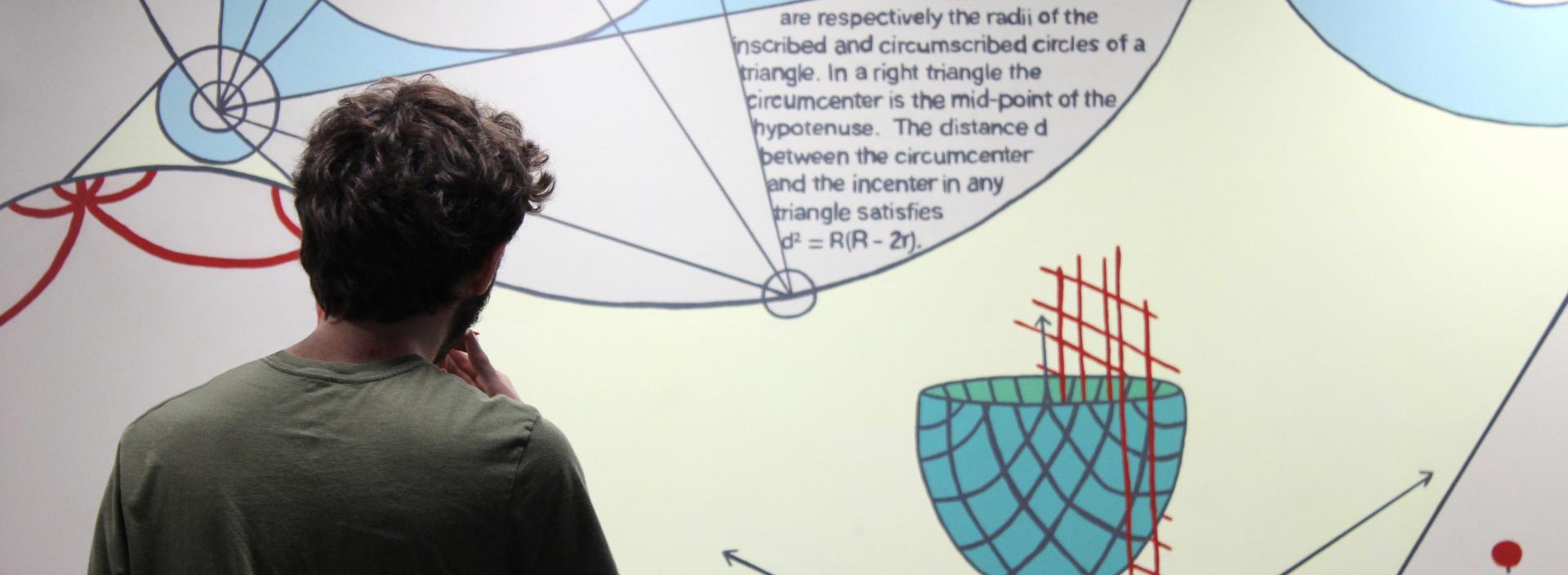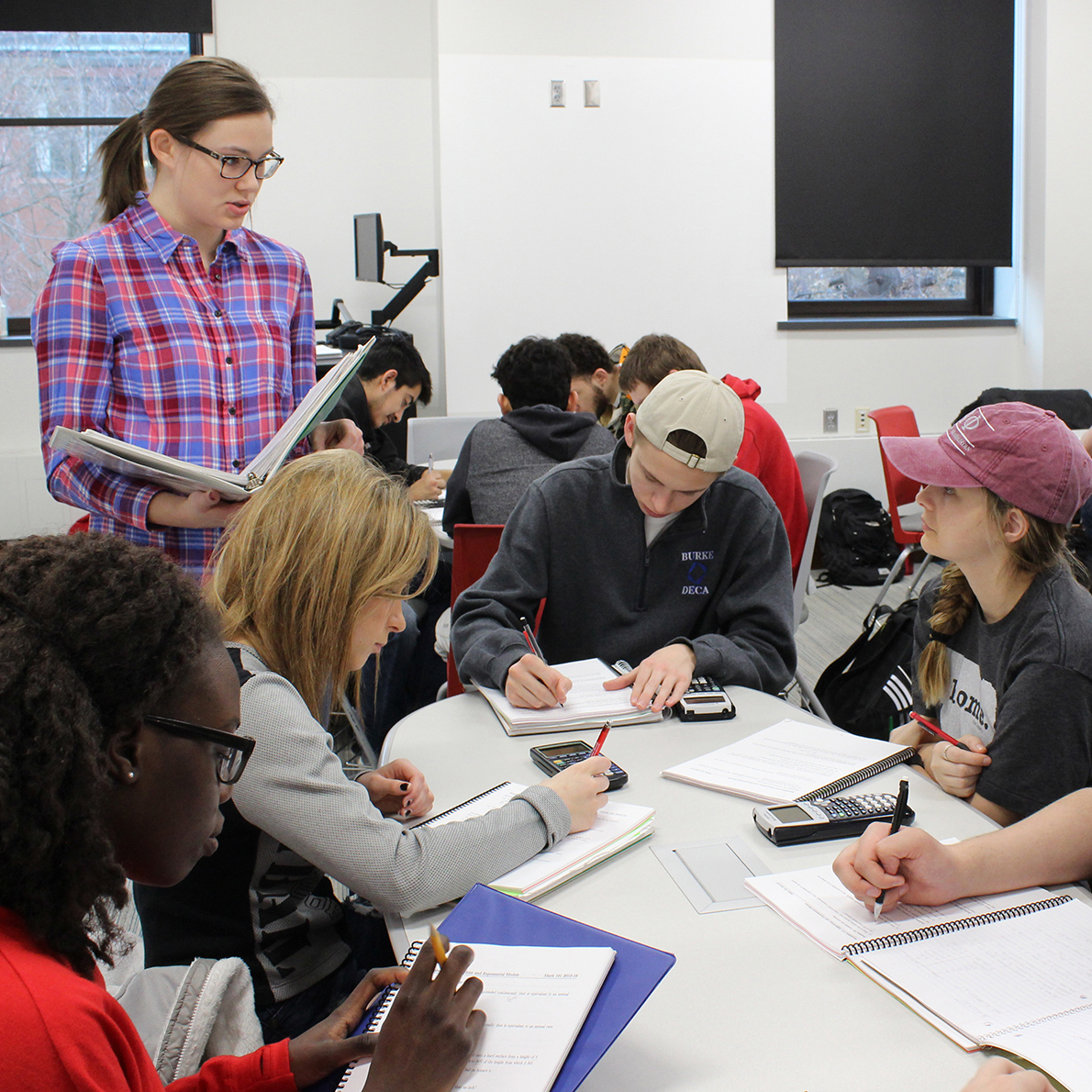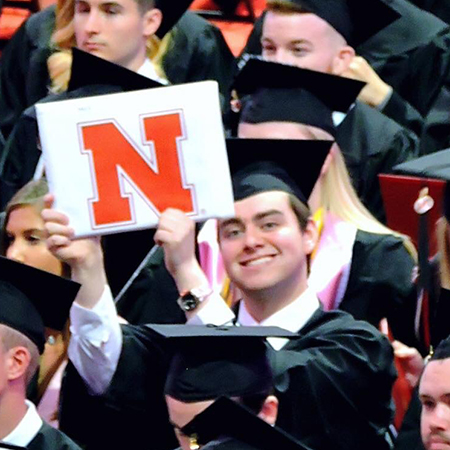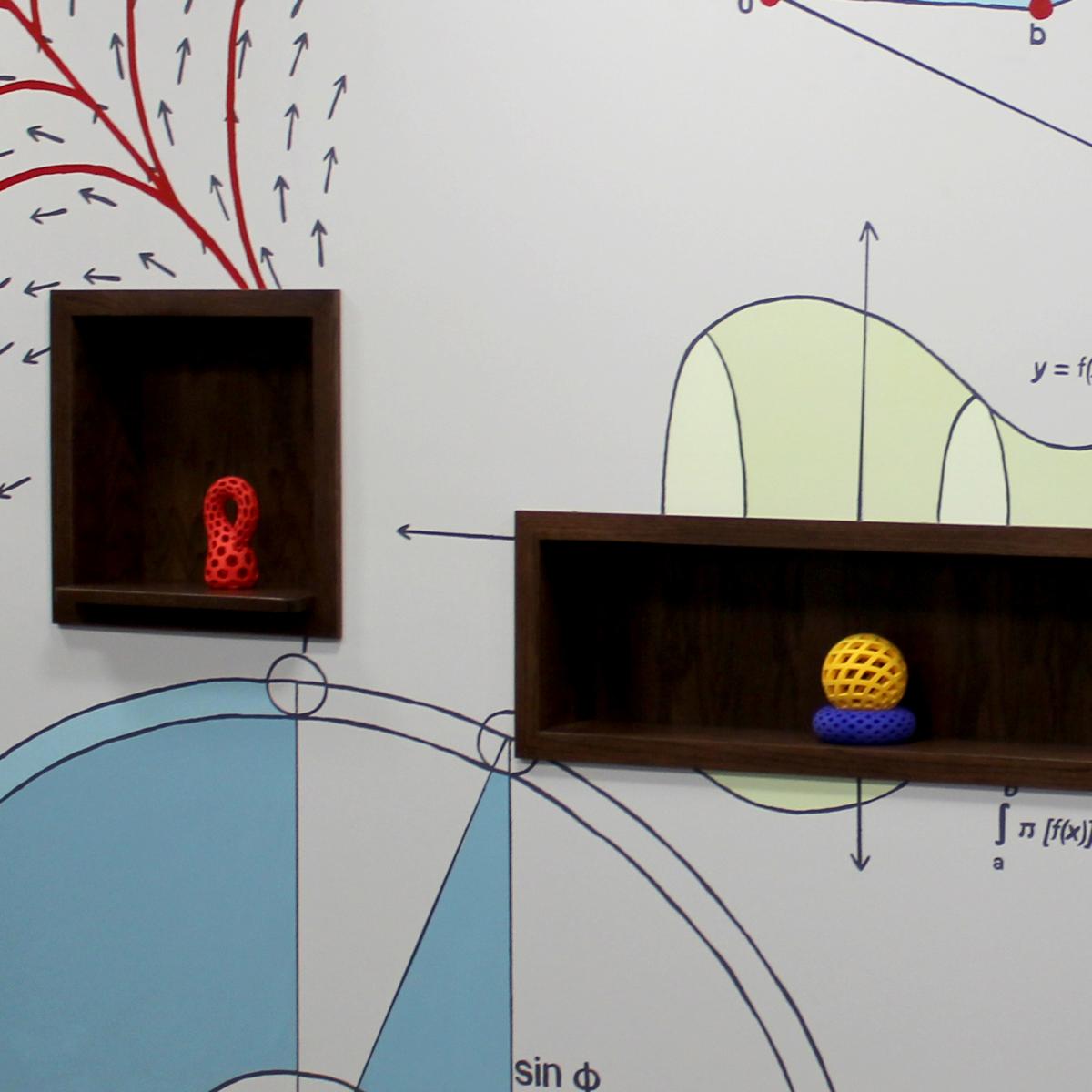
Learn More about our Department
The Department of Mathematics provides an excellent environment in which to study mathematics. We have approximately 270 full-time undergraduate majors, 100 secondary education majors seeking their endorsement in mathematics, 83 full-time graduate students in our master’s and Ph.D. programs, and an additional 4,000 students taking mathematics courses to support their degree programs. The faculty of 38 share a strong commitment to high quality, in both teaching and research, and offer a diversity of interests that include the major areas of modern mathematics. Almost all courses at or above the calculus level are taught by the faculty, rather than graduate students or part-time instructors.
The department received the American Mathematical Society's (AMS) Award for an Exemplary Program or Achievement in a Mathematics Department in 2009. This prestigious award recognizes a department that has distinguished itself by undertaking an unusual or particularly effective program of value to the mathematics community, internally or in relation to the rest of society. The department received this honor because it is a national leader in increasing the representation of women in the profession, has improved the mentoring and early career training of students, and has achieved a national leadership position in the mathematical education of teachers, all while concurrently growing its doctoral program in both size and national profile.
In the 1980s, the department awarded 23 Ph.Ds, none of which were awarded to women. In the late 1980s, the department made a new commitment to its graduate program and to recruiting women graduate students. When Linda Dobson Fosnaugh earned her Ph.D. in 1991, she became only the sixth woman to earn a Ph.D. from the department. By 1994, when Vesna Kiliabara and Aihua Li earned their doctorates, under John Meakin and Sylvia Wiegand, respectively, the profile of the graduate program had changed. Between 1994 and 2010, the department has awarded 107 Ph.Ds, 46 (43 percent) of which have been awarded to women. The August 2004 Notices of the AMS reported that between 1995 and 2003, 24 percent of Ph.Ds awarded in the U.S. went to women and that the Nebraska Department of Mathematics ranked first among universities that had awarded more than 60 Ph.Ds during that period.
The department's success mentoring women graduate students was first honored in 1998, when it became the first mathematics department in the country to win a Presidential Award for Excellence in Science, Mathematics and Engineering Mentoring. The department used the funds from the Presidential Award and other funds from Nebraska to launch the first Nebraska Conference for Undergraduate Women in Mathematics in 1999. This annual conference attracts more than 250 undergraduates from across the country and has become a national showcase for research by undergraduate women in mathematics.
Other outreach programs that have led to the department's recognition are:
- All Girls/All Math (AGAM): A nationally recognized educational outreach program that contributes to the effort to encourage high school girls to study mathematics in college. AGAM summer camps have been organized at Nebraska each summer since 1997, with support from the AMS Epsilon program, the NSA and MAA Tensor.
- Mathematical education for teachers: Two NSF grants, Math in the Middle and NebraskaMATH, supported a campus-wide partnership to enhance the mathematical education of Nebraska math teachers.
- Carnigie Initiative on the Doctorate: The department was one of eight mathematics departments in the country to be invited to participate in this initiative, and it made substantial contributions to the national dialogue about graduate education in the U.S.
The department is part of the College of Arts and Sciences, Nebraska's oldest and largest college. In addition to offering more than 50 majors and minors, the College of Arts and Sciences supports the degree programs of students in every college by providing the vast majority of their collateral and elective courses.
EMPLOYMENT OPPORTUNITIES



